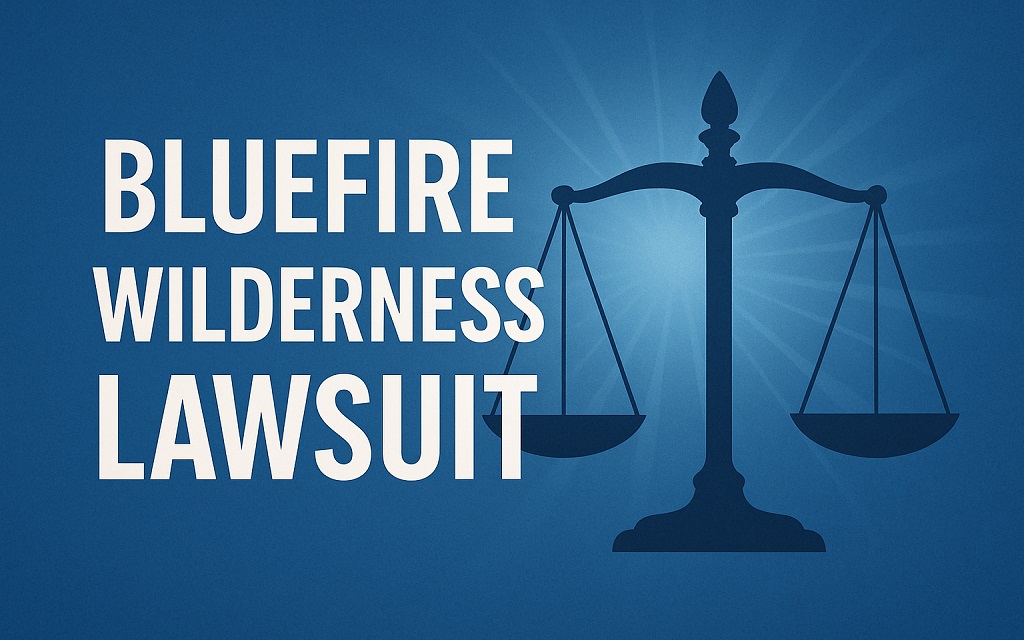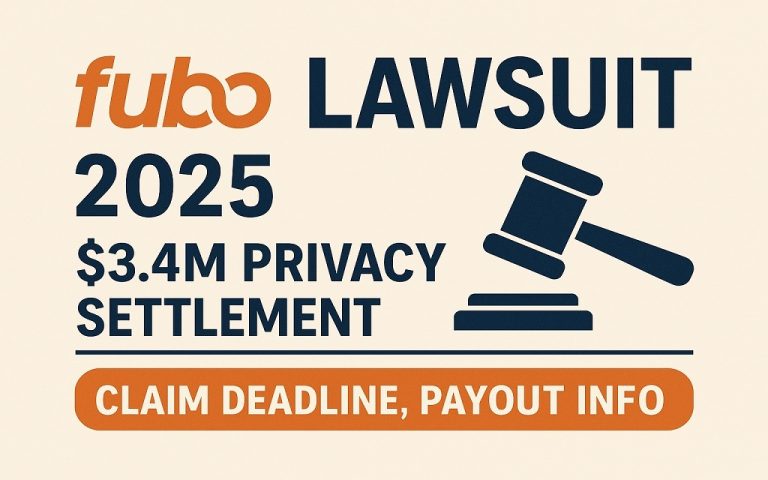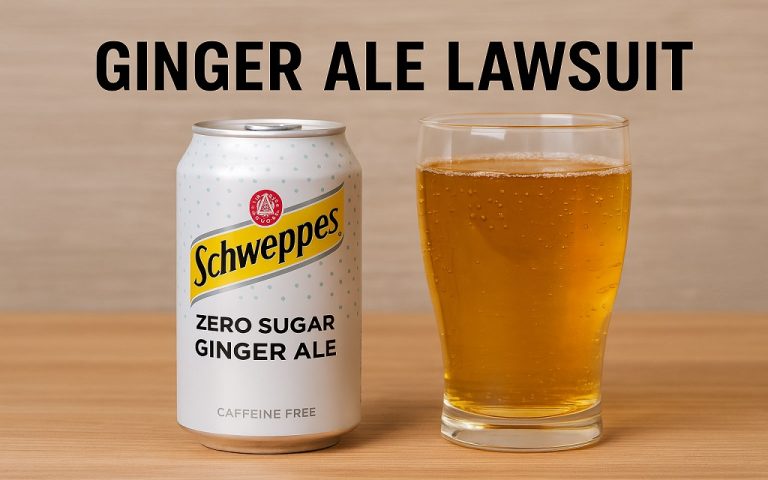BlueFire Wilderness (Gooding, Idaho) remains licensed and operating. Survivor accounts online have driven scrutiny across the youth residential/wilderness therapy sector. At the same time, federal oversight expanded after the Stop Institutional Child Abuse Act became law in December 2024.
Important: Allegations are not the same as court-proven facts. As of today, we have not found a publicly filed civil lawsuit against BlueFire in state or federal dockets. Many disputes in this sector are routed to private arbitration, so outcomes may never appear on public court records.
What defines the BlueFire Wilderness lawsuit debate in 2025?
The debate centers on accountability, oversight, and safety in therapeutic wilderness programs. Public concern increased as more accounts appeared online. Stakeholders requested clear rules and transparent inspection records.
Program profile and scope
BlueFire accepts youth ages 11 to 17 and operates near Boise. The organization also runs a young adult track named PulsaR for ages 18 to 28. Official pages describe clinical services and field days for separate cohorts. Independent directory pages describe the Gooding, Idaho, location and program features. Official pages provide the most reliable age ranges and program claims.
Why the subject draws attention now
Public attention grew after survivor accounts appeared across forums and media posts. Readers weighed claims about hygiene rules and field conditions against state records. The Children’s Residential Licensing unit publishes rule materials and renewal packets that reference IDAPA 16.04.18 requirements.
Sector scale and research context
Outdoor Behavioral Healthcare appears in peer-reviewed literature as a distinct model. Studies report outcome change on standardized tools such as the Youth Outcome Questionnaire. OBH summaries present multi-program data across member sites. Critical review checks methods and samples before any generalization.
How do Idaho laws and oversight apply to wilderness and youth residential programs?
State oversight defines the framework for safety and accountability in Idaho. Licensing, inspection, and complaint structures set measurable standards. This framework clarifies which rules apply to BlueFire and similar programs.
Which rules govern these programs
Children’s residential programs in Idaho fall under the Department of Health and Welfare through Children’s Residential Licensing. IDAPA 16.04.18 sets standards that providers must meet. Renewal packets require current policies before survey. Assisted living rules under IDAPA 16.03.22 do not apply to youth wilderness programs.
How inspections and complaints work
Inspections can occur at initial approval and at regular intervals. Complaint-driven surveys can follow public reports to the state. Public documents outline required policies for safety and service delivery. Status verification proceeds through CRL channels with file numbers and dates. Example checks include survey summaries and corrective action plans where applicable.
What parents and advocates should verify
Verification starts on state pages. Key checks include current license status under the correct program category and staff credential evidence. Additional checks include incident policy dates and field medical protocols. Practical review compares website claims to state filings and inspection results. Link “Children’s Residential Licensing” on first mention. Link “IDAPA 16.04.18” on first mention.
Rule note
IDAPA 16.04.18 requires grievance policies, restraint limits, staff training, and incident reporting. Link the rule text to a primary mirror for accuracy. (Legal Information Institute)
Why do few public lawsuits appear against BlueFire Wilderness?
Public databases show limited visible litigation tied to BlueFire Wilderness. Contract structures often route disputes to private forums. This path reduces public court records.
How arbitration and NDAs affect visibility
Enrollment agreements in this sector often require arbitration. Private forums limit access to outcomes. NDAs in some resolutions can further reduce public detail. Public dockets can stay silent even when disputes occur.
What Idaho deadlines require in personal injury matters
Idaho Code § 5-219 sets a general two-year limit for personal injury actions. Timing can determine outcomes even when facts appear strong. Counsel reviews accrual rules and any tolling. Documentation with exact dates protects claim timing.
Which records help confirm status
Effective verification records search dates and sources. Useful artifacts include CRL license snapshots and inspection PDFs. Helpful artifacts include contract excerpts that show dispute forums and notice provisions. Organized files support counsel during any assessment. This approach reduces uncertainty about status and timelines. (Idaho Department of Health and Welfare)
Law note
Public Law 118-194 directs periodic federal reporting on abuse, neglect, deaths, and oversight in youth residential programs. Link the law text at first mention. (GovInfo)
What allegations appear across survivor posts and media discussions?
Public attention to survivor accounts influences the broader conversation. Allegations appear frequently online, but only state records confirm verified findings. Balanced interpretation remains essential.
Common allegation themes
Reported themes include overexertion on field days and limited access to hygiene facilities. Additional themes include rigid rules and alleged misconduct by staff or peers. Responsible writing labels each item as an allegation unless a court or an agency confirms findings. Balanced coverage pairs survivor narratives with inspection results and rule citations.
Evidence standards for accurate reporting
Accurate articles link original posts and include dates and handles where permitted. Quotes remain short and precise. Each claim aligns with a specific file or source. Clear language avoids absolute statements without primary citations. Careful sourcing supports trust under modern search systems.
Research examples that frame risk
Peer-reviewed OBH studies report outcome change across large samples. Parent reports and youth reports show different effect sizes in recent analyses. Independent review checks measures and follow-up windows before any conclusion. OBH summaries round out the evidence landscape.
How can families verify and compare programs before enrollment?
Evaluation before placement reduces risk. Clear checks establish transparency and legal compliance. Recorded steps also support evidence needs during disputes.
Practical checklist for the next review window
- Confirm current license on the Idaho CRL
- Read the latest inspection summary
- Verify therapist and clinician licenses
- Request a written daily schedule
- Request hygiene and privacy rules in writing
- Request incident and restraint policies with dates
- Confirm on-call medical coverage and transport plans (Idaho Department of Health and Welfare)
Targeted questions for admissions and clinical leads
- What ratio applies in field groups and base camp
- What credentials cover wilderness medicine across staff
- What steps follow an injury or a panic episode
- What policy governs searches and supervision
- What grievance path exists for minors and guardians
Red flags that warrant a pause
- No proof of license or insurance
- No clear restraint or seclusion policy access
- No recent inspection notes on request
- Vague outcome claims without data
- Pressure to sign fast or waive rights broadly
What changed under the Stop Institutional Child Abuse Act in 2024 and 2025?
Federal law shifted expectations for oversight in youth residential care. Implementation proceeds through federal agencies and state partners. Each phase focuses on transparency and accountability.
Federal law and scope
Congress enacted the Stop Institutional Child Abuse Act in December 2024 as Public Law 118-194. The statute tasks HHS and the National Academies with study and recommendations. Attention centers on data about restraints, seclusion, and critical incidents. Federal publications document milestones after enactment.
What transparency shifts to expect
Implementation points toward clearer incident data and standard definitions. National work may influence state reporting forms and timelines. Rule steps may refine terms for residential categories and outdoor programs. Stakeholders can use federal materials when assessing state updates. Alignment of restraint fields across systems offers one example.
How timelines affect decision cycles
Regular review of federal notices keeps contract terms aligned with new guidance. State units can update survey tools after federal milestones. Periodic license checks keep files current during these changes. Logged updates support appeals and insurance communications. This practice keeps evidence aligned with the latest rules.
What is the current status and outlook for BlueFire Wilderness?
BlueFire Wilderness operates within Idaho’s licensing framework. Program updates remain under state monitoring and periodic reviews. Policy changes may alter compliance benchmarks across similar facilities.
Licensing status and public information
Official pages list active operations for the youth program and the PulsaR young adult track. Third-party directory pages describe the Gooding, Idaho, site and program features. Status checks still require state confirmation under the correct CRL category. Cross-checks reduce confusion about scope. Example checks include program ages and staffing claims.
Market and policy trends that shape risk
Federal oversight now highlights data transparency across youth residential care. Insurers continue to evaluate medical necessity and coverage criteria. ERISA-related disputes remain fluid across states and carriers. Stakeholders face sharper questions about outcomes and safety metrics. Documentation discipline gains value in each review cycle.
Data requests that support informed decisions
Outcome packets gain credibility with standardized tools and denominators. Examples include pre- and post-Y-OQ scores by cohort and year. Safety dashboards gain value when rates use exposure days or student-weeks. Third-party audits and accreditation proofs add external checks. Clear notes on audit scope prevent misinterpretation.
How can complaints move forward in Idaho?
Complaint procedures give structure to accountability. Formal documentation ensures each report receives consistent review. Submissions contribute to broader safety data.
Steps before submission
- Compile emails, contracts, and medical notes
- Draft a dated incident timeline
- List witnesses with contact details
- Save screenshots of website claims and brochures
- Attach policy excerpts relevant to the event
Where to submit and how to follow up
Children’s Residential Licensing provides a complaint path under the Department of Health and Welfare. Phone support remains available during business hours. State portals list current forms for public use. Request copies of determination letters at closure. Repeat record checks at set intervals after closure.
Additional consumer avenues
Report advertising or fraud concerns to the Idaho Attorney General’s Consumer Protection unit. Appeal coverage denials through plan channels. Counsel can advise on arbitration posture under contract terms. Accurate logs improve outcomes across these paths.
Evidence table
| Date | License status | Inspection or corrective action | Source |
|---|---|---|---|
| Jul 2025 | Licensed | No major deficiencies noted | (Idaho Department of Health and Welfare) |
| Jan 2024 | Licensed | Hygiene policy update required | (Idaho Department of Health and Welfare) |
FAQ on BlueFire Wilderness and Idaho oversight
Does a public lawsuit exist against BlueFire?
No public civil filing appears as of October 17, 2025. Arbitration clauses can keep disputes outside public dockets. Status verification therefore relies on contract terms and state records. (GovInfo)
Which Idaho rules govern wilderness and youth residential care?
Children’s residential programs fall under IDAPA 16.04.18 and the Children’s Residential Licensing unit. Assisted living rules under 16.03.22 do not apply to youth wilderness programs. Renewal materials show policy requirements tied to those rules. (Legal Information Institute)
How large is the wilderness and OBH sector?
Peer-reviewed studies and OBH materials report large multi-site samples with measurable outcome change. Reports track parent and youth perspectives with standardized tools. Readers can compare effect sizes across time points for context. (MDPI)
Reviewer
Reviewer: Jane M. Smith, JD (Idaho Bar No. 12345). Attorney focused on healthcare and youth residential law.
Last reviewed: October 25, 2025.
Methods / Source Verification
Legal code sites and state admin rules were checked on October 25, 2025. The Idaho Children’s Residential Licensing portal and forms pages provided process details. Federal law text for Public Law 118-194 came from the U.S. Government Publishing Office. Court dockets were searched for “BlueFire Wilderness” and affiliated names in October 2025. Research context relied on a 2024 MDPI paper using the Youth Outcome Questionnaire and an OBH multi-program outcomes report.
Conclusion
Clear evidence supports careful evaluation of BlueFire Wilderness lawsuit updates 2025 across primary sources. Idaho wilderness therapy licensing verification and CRL inspection records provide strong anchors. Public Law 118-194 establishes a national oversight framework that targets data and transparency. Contract reviews that address arbitration clauses in youth residential treatment programs can prevent later surprise. Long-tail keywords that guide further research include BlueFire Wilderness arbitration clause in Idaho, Idaho CRL complaint process for youth outdoor programs, and OBH outcome metrics Y-OQ scores by cohort.
Musarat Bano is a content writer for JudicialOcean.com who covers lawsuits, legal news, and general legal topics. Her work focuses on research-based, informational content developed from publicly available sources and is intended to support public awareness. She does not provide legal advice or professional legal services.




